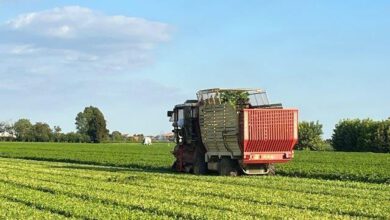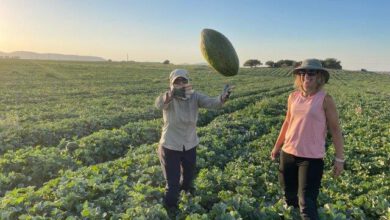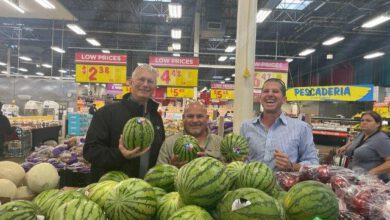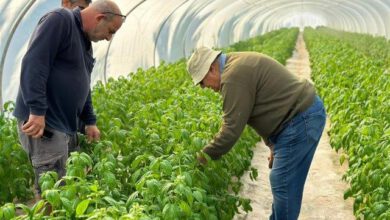On Tomato Breeding & Realizing Your Dream: from Lab to Dish
Hazera has won a reputation as a world leader in tomato breeding
Interview with Netta Doitch, Tomato Breeder at Hazera Seeds
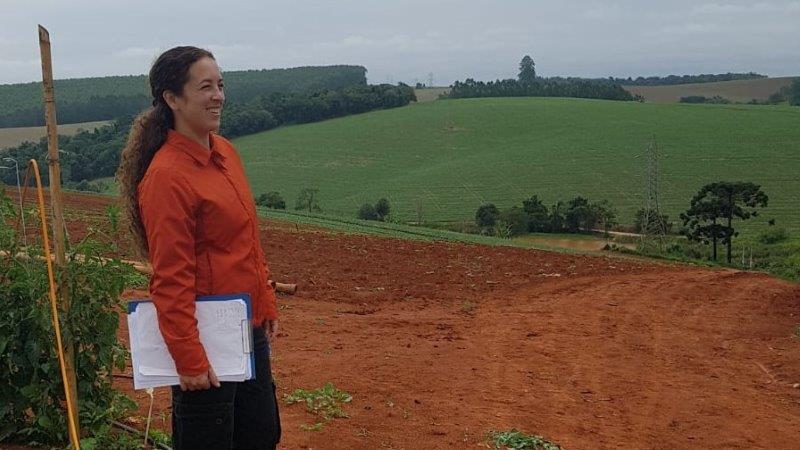

hazera company is one of the world’s leading companies in the breeding, production and marketing of vegetable and field crop seeds. its intensive investment in advanced research and development enables the company to provide unique and innovative solutions to growers and consumers located in all corners of the globe. hazera develops products with improved flavor and appearance, that are healthier and have long shelf lives. in particular, hazera has won a reputation as a world leader in tomato breeding.
during an open field day held by the company, we met netta doitch, who has been working at hazera for 11 years, and some of the products she bred are already on sale on the food chain shelves. currently, netta’s main focus is on the breeding of tomato varieties grown in open fields around the world. we asked netta to tell us a little about her work.
”even back when i was a child, i felt a desire to enter the world of vegetable breeding. my work at hazera has certainly fulfilled my dream”. nowadays, netta is realizing her dream in the field of tomatoes, where she focuses her knowledge and skills on tomato varieties that are suitable for open field cultivation, which are divided into two types: “indeterminate” varieties and “determinate” varieties. indeterminate varieties are characterized by a plant that continues to grow over time, a tall, strong plant, which allows for continuous harvesting, growth and trellising (staking). in countries such as brazil, australia and south africa, the trellising (staking) method is used in open fields, with plants growing in hot and rainy climates. determinate varieties are characterized by shorter growing times, which plants that are sprawling or grown as staked shrubs. these varieties are true to their name – meaning that they grow quite quickly, have lower cultivation costs, and they provide a high yield in the short term.
netta explains: “i work on a wide range of varieties – from small to large, from types such as roma, beef, and in different climatic conditions, etc., so i enjoy a very wide genetic diversity, which allows for different and varied compositions.”
according to netta, at the beginning of the breeding process, the desired product is jointly defined by the r&d, marketing and sales teams. many factors are taken into account during this process, ranging from environmental conditions, growing method (net-house / open field / greenhouse) and disease resistances, to the different tastes and preferences of end consumers in terms of the tomato size, color and flavor. in turkey, for example, there is a demand for a particularly large round tomato weighing 220-250 grams, in ethiopia the demand is primarily for 130-gram round tomatoes of the roma type, while in brazil there is a particularly high demand for round indeterminate tomatoes weighing 220-250 grams.
netta, who is one of the leading breeders in her field, and is a proud example of a woman of many accomplishments and success in agriculture, says the next step in the breeding process is the selection stage. ”we walk the fields in search of plants that will be the ‘parents’, who will provide the right features and traits that we seek. the selected ‘parent’ plants are collected and transferred for production of hybrids according to the requested protocol. at this stage, about 400 hybrid plants are planted in the experimental trial area in a very systematic and precise manner: each sector, which has its own “id”, contains 10 plants. when the growth results are satisfactory and are in line with the product definition, i decide to move forward.”
“next, i select about one tenth of the 400 hybrid seedlings that have been planted and advance them to the next stage, which again focuses on producing more stabilized parents’. i transfer these hybrids to the destination sites for planting and observation. we then conduct several trails at the sites of selected breeders, each located in one of the growth destinations, to see how the varying environmental conditions affect the product before advancing to the commercial production stage.”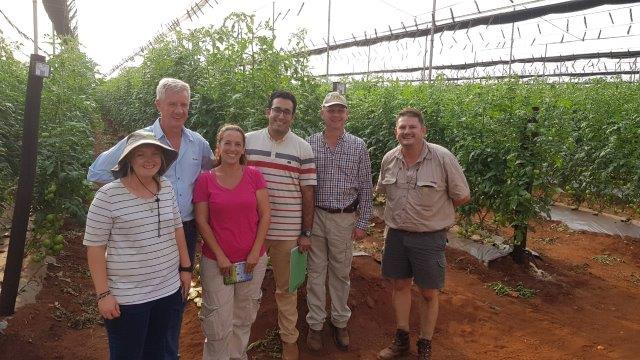
netta, which already has a number of the leading tomato varieties to her name on the market (along with her colleagues at hazera), brings with her experience and understanding of the entire breeding and cultivation process. “i pay close attention to the farmer’s work stages and steps, to the harvesting process, and the shelf life requirements. for example, in some regions tomatoes are harvested when green, in other areas they are harvested only when they reach a full red color, and then the firmness of the fruit must be taken into consideration, because red fruit that is not firm enough will not provide the desired shelf life.”
work at hazera company is always based on focused, goal-oriented collaboration, as netta described it: “then, together with product managers and sales people, we decide which varieties will move on to the third stage. at this point, it is possible that we will only advance one of three varieties. the few varieties that are selected are planted in large quantities in large areas, to test their stability. we observe these varieties and test them against existing commercial varieties on the market, because the goal is to penetrate the market, and to provide added value to growers. before reaching the commercial stage, we conduct one more trial – with fewer varieties but with more plants.”
“overall, the fascinating breeding process is composed of 5 to 6 stages, and takes place in both the laboratory and the field. i love my job and i’m excited to see the final product succeed after the long, complex process. i feel great satisfaction when i meet a farmer who grows the variety and is pleased with its results and when the variety reaches the plates of the end consumer – and most of all, i’m proud to be the breeder of a market-leading variety.”
satisfied breeder – satisfied customers 😊

